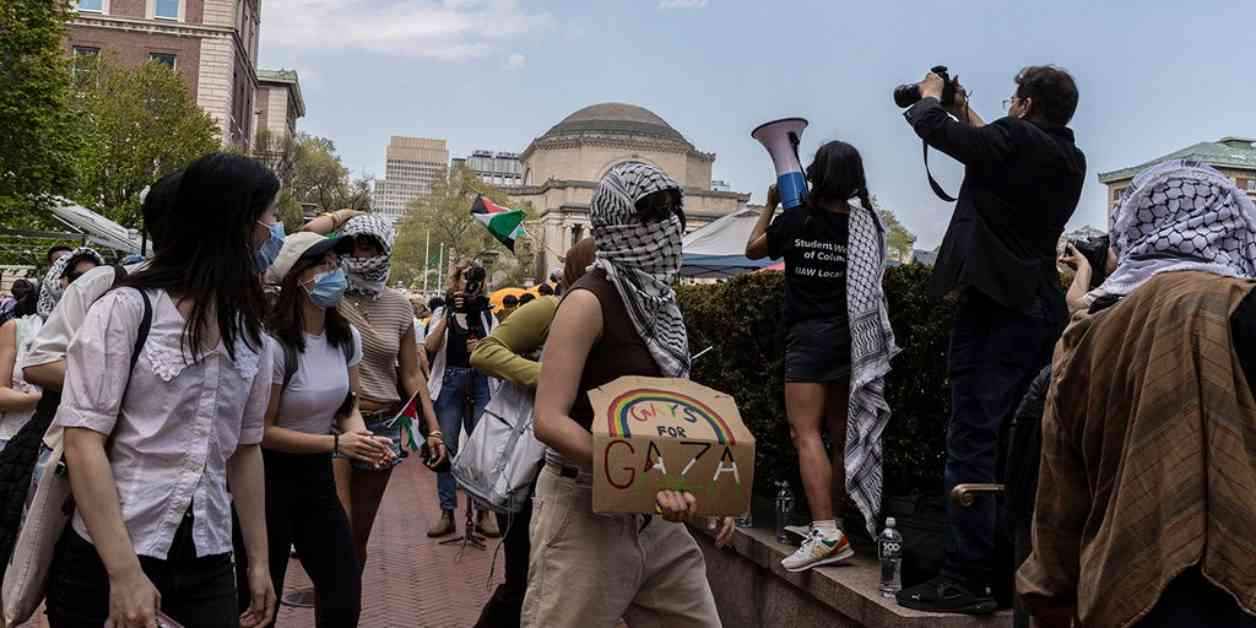A group of student protesters at Columbia University expressed their discontent with the Trump administration’s decision to revoke over $400 million in federal grants to the university due to allegations of antisemitism following the Hamas attack on Israel on October 7, 2023. The group, known as Columbia University Apartheid Divest, took to social media to voice their concerns, calling the decision a “transparent scare tactic” and accusing the administration of using fabricated charges of antisemitism to justify the funding cuts.
In response to the backlash from student protesters, the university’s interim president, Katrina Armstrong, stated that the university takes the cuts seriously and is willing to address the federal government’s concerns. Armstrong acknowledged the need to repair the harm done to Jewish students who felt targeted and unsafe on campus during previous protests.
The student protesters criticized the university for what they perceived as appeasing Zionists and fascists, citing instances of increased surveillance, expulsion of pro-Palestinian students, and rejection of calls to divest from Israel. They accused the university of prioritizing wealthy donors over marginalized communities and called for organized resistance against injustice.
Protesters’ Call for Action
The student protesters at Columbia University made their voices heard through a series of Instagram posts, questioning President Armstrong’s allegiance and highlighting the university’s alleged disregard for marginalized communities. They emphasized the need for collective action to combat systemic injustices and ensure the safety of all students on campus.
One of the key grievances expressed by the protesters was the university’s failure to divest from Israel, despite calls from the student body. They criticized the administration for prioritizing financial interests over ethical considerations and accused them of perpetuating violence against Palestinians. The protesters called for solidarity and resistance against oppressive systems that perpetuate inequality and harm vulnerable communities.
University’s Response and Path Forward
In response to the student protesters’ concerns, Columbia University’s interim president, Katrina Armstrong, reiterated the university’s commitment to addressing issues of discrimination and harassment on campus. Armstrong acknowledged the need to rebuild trust with Jewish students and create a more inclusive and safe environment for all members of the university community.
Armstrong emphasized the importance of collaboration between the university and the federal government to address legitimate concerns and work towards a resolution that benefits all stakeholders. She expressed a willingness to engage in meaningful dialogue with student groups and other stakeholders to address systemic issues and promote a culture of respect and inclusion on campus.
As the debate over funding cuts and allegations of antisemitism continues, Columbia University faces a critical juncture in its efforts to uphold its values of diversity, equity, and inclusion. The university must navigate the complex dynamics of student activism, political pressures, and financial considerations to chart a path forward that aligns with its mission and principles. It remains to be seen how the university will address the grievances raised by student protesters and reconcile competing interests to ensure a more equitable and just campus environment.


